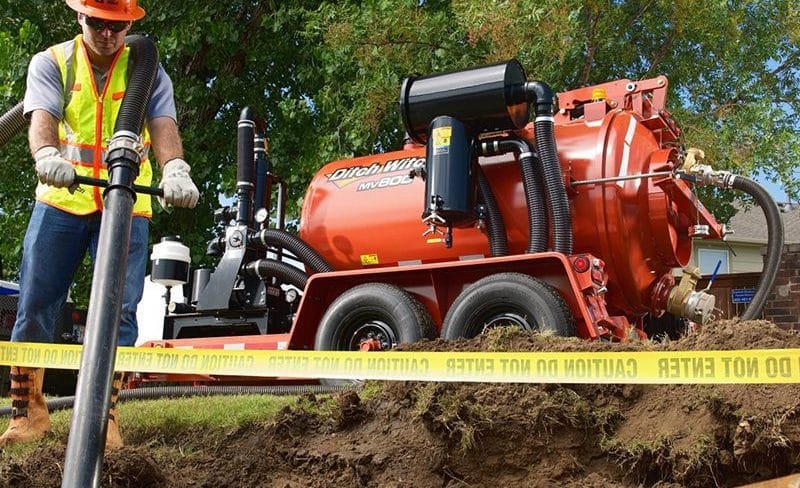Hydro Excavation vs Air Excavation
Excavation processes can be quite challenging and need a considerable deal of attention to maintain work safety and make sure that underground utilities are not affected. Vacuum excavation provides an alternative to hand digging or the use of heavy excavating equipment, minimizing the health risks of on-site workers, while removing unwanted material from an area.
Types of Excavation
There are two types of vacuum excavation options – air and hydro excavation. Let’s find out which one is better.
Spoil Material
One of the major differences between hydro and air excavation is the use of spoil material. With air excavation, contractors backfill holes by reusing the spoil. You can’t reuse the spoil in hydro excavation and it has to be hauled away when there is nothing to dump on-site. However, if you don’t need backfilling or minimal backfilling, this is not a major issue.
Soil Conditions
Soil conditions are one of the biggest concerns when picking equipment. Based on the soil that has to be excavated, you might struggle to complete the job with air alone. High-pressure water can be more effective; it can allow you to cut through any type of soil with a suitable nozzle. Although air works well for loose soil, water is the best choice for frozen, compacted, rocky, and dense clay and soil.
Deep Excavations
Pneumatic digging can be affected by deep excavations. Air excavations tend to work better in dry soils, limiting you to shallow digs. If excavation contractors have to dig to deeper levels, the area might include underground moisture and loamy clay that can disrupt air excavation. Hydro equipment can’t easily tackle wet conditions.
Natural Lubricant
Water is a natural lubricant. Therefore, hydro excavation equipment can last for long periods without being affected by the wear and tear that is common with air excavation. No sand is blown around in hydro excavation, something which is performed in air excavation, leading to the production of sandblasting effect in the immediate area. Blowing sand can affect something near the excavation site and affect equipment components to fail.
Speed
Many components of hydro excavation can impact your speed. For instance, going to a water source for refilling water tanks is a time-consuming procedure. Similarly, a lot of time goes into hauling vacuumed debris off-site while you are struggling to dump on-site. However, the speed of hydro excavation is considerably quicker, which means that any additional time spent performing those tasks is compensated.
Do you need help with vacuum excavation? Get in touch with us today. Our experts will determine which type of excavation is good for you and do it in a way that offers maximum efficiency for your processes.




